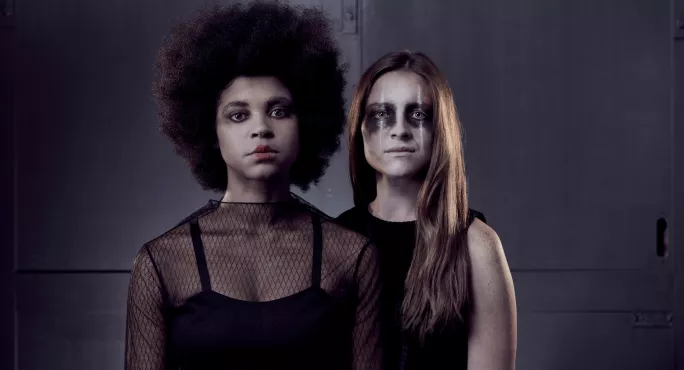
- Home
- ‘To explore gender politics, point pupils to Macbeth’
‘To explore gender politics, point pupils to Macbeth’

Next month, I’ll be taking to the stage to play Lady Macbeth in a new production by the National Youth Theatre Rep Company. Although we will be using the original Shakespearean text, which of course we’ll treasure and respect, we’re refusing to be constrained by preconceptions about it.
In this production, Macbeth will be female, King Duncan has become a Queen, and both the Porter and Donalbain are played by girls. Two male actors will join one female as the witches, who are in many ways beyond gender convention. Banquo tells them: “You should be women, but your beards forbid me to interpret that you are so.” Binary-identified people have, it would appear, long been fascinated by those who exist beyond the two boxes.
Why has the creative team taken a gender-fluid approach to casting? Shakespeare wrote Macbeth as a response to the political and social realities of the world in which he lived – the play reflects, questions and provokes, just like a good education does. And that is exactly what we are doing with our production, showing young people that women can be leaders, warriors and yes, tyrants. The fashion for “strong female characters” is well overdue some darker shades, I think.
Macbeth herself, played by Olivia Dowd, is very much a warrior in a man’s world, and she wields masculinity as she does her weapons. Lines like “I dare do all that may become a man. Who dares do more is none” really sing in this new context, and raise questions about how women aspiring to the top are compelled to adopt masculine traits in order to get there.
Lady Macbeth, meanwhile, manipulates Macbeth precisely by accusing her of lacking manliness. Their famous relationship is predicated on the wiles of one balanced with the strength of the other – and of course the ambition of both – but I believe we’re long past the age where those attributes must be pinned to female and male bodies. Isn’t it far more interesting to see a queer couple where one woman is undermining the masculinity of the other?
As for women playing male roles, Maxine Peake’s Hamlet in 2015 was a milestone for me. It was the first time I was aware of a female actor playing a male classical role. That acclaimed performance is available on film, and I’d also direct both teachers and pupils to the BBC iPlayer for the Donmar Warehouse’s three brilliant Shakespeare productions directed by Phyllida Lloyd. I saw each one twice. Setting the plays in a prison put women at every level on the food chain – there aren’t many such environments but funnily enough, single-sex schools and prisons share that attribute: and what a fascinating effect it has on power dynamics.
Long way to go
Teachers are, in many ways, on the front line of gender developments, working alongside young people finding and creating language for who they are. Theatre is fertile ground for exploring identity, but there is a long way to go. Non-binary and intersex artists, in particular, are only gradually being granted real funding and platforms to make work exploring their experiences. Travis Alabanza’s Burgerz is one such piece I’m especially excited about.
Although school budgets are tight, I believe it’s vital to be taking kids to hear these stories, especially since statistics on gender non-conformity in young people are soaring. The National LGBT Partnership states that gender-variance support services are seeing a 50 per cent rise in referrals. Educators can help pupils both understand this reality and feel more confident in who they are by exposing them to bold new productions where gender is questioned, inverted and seen as something creative rather than constricting.
I’d encourage drama teachers to think deeply and repeatedly about the statements they’re making with the plays they choose to stage in schools and the casting they undertake: does the lead have to be male? How could non-binary students be accommodated? What are we saying when we put a man in a dress for laughs?
As actors, Liv and I know that some of our audience will arrive at the theatre with phones in hand, snacks in pockets and minds on other things, but when the imaginations of those young people combine with the power of Shakespeare’s story, I have little doubt they’ll find themselves captivated.
No one knows better than readers of Tes that an education is a long-term endeavour, and I don’t expect one dynamic production of Macbeth to alter all our young audiences’ worldviews. But with a cast all under the age of 26, few theatre companies are better placed than NYT Rep to bring the play to vibrant, refreshing life. Seeing that it’s possible might make a lot of other things look possible, too.
Isabel Adomakoh Young will be playing Lady Macbeth in the National Youth Theatre Rep Company’s production of Macbeth at the Garrick Theatre, 20 November until 7 December
Register with Tes and you can read five free articles every month, plus you'll have access to our range of award-winning newsletters.
Keep reading for just £4.90 per month
You've reached your limit of free articles this month. Subscribe for £4.90 per month for three months and get:
- Unlimited access to all Tes magazine content
- Exclusive subscriber-only stories
- Award-winning email newsletters
You've reached your limit of free articles this month. Subscribe for £4.90 per month for three months and get:
- Unlimited access to all Tes magazine content
- Exclusive subscriber-only stories
- Award-winning email newsletters